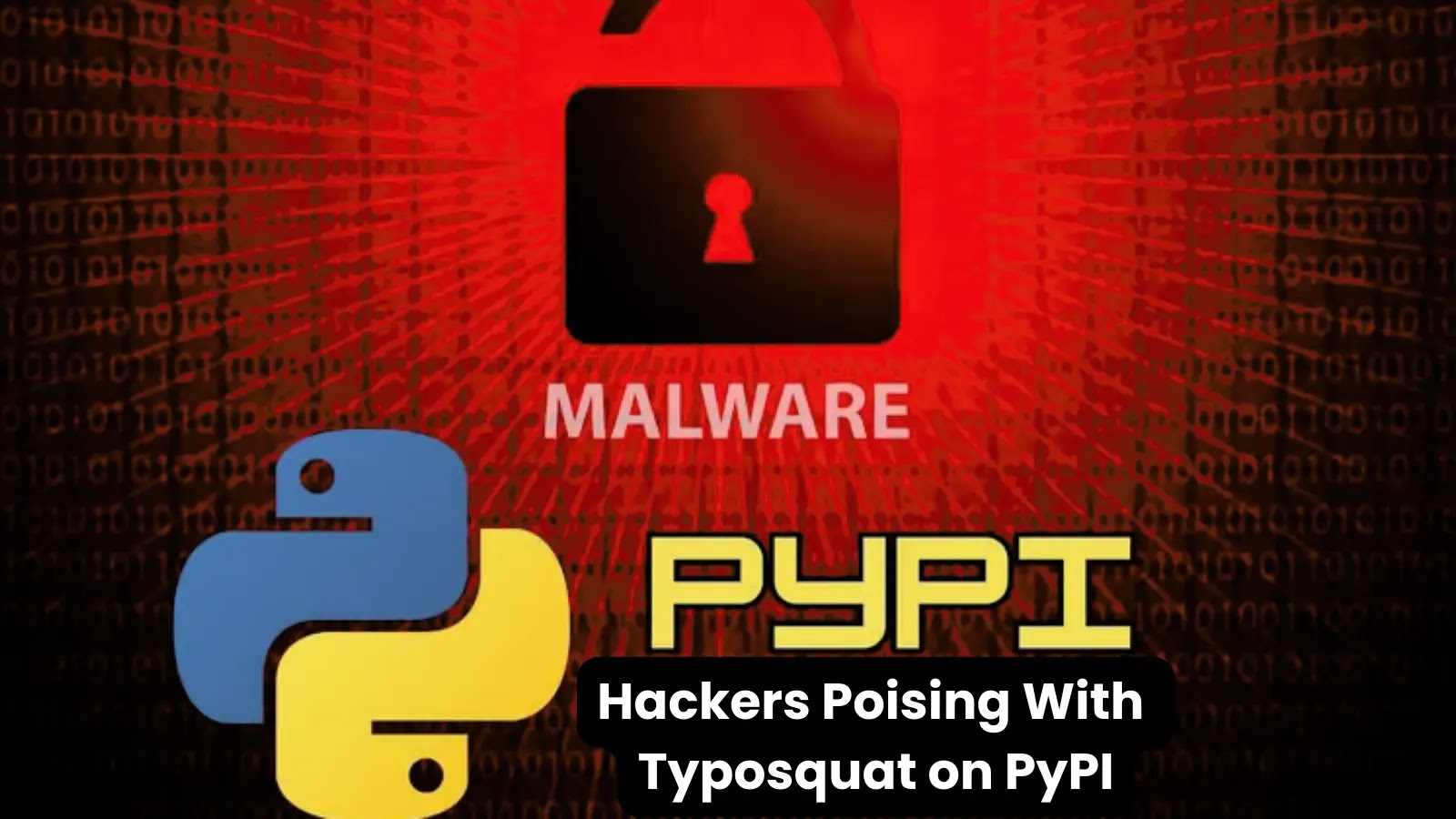Hackers Attack Python Developers by Poising With Typosquat on PyPI

An automatic risk detection system identified a typosquatting marketing campaign focused on smartly-liked Python libraries on PyPI. In two waves with a 20-hour crash, the attack deployed over 500 diversifications with typos in names love requests, TensorFlow, and BeautifulSoup.
The selling campaign integrated unsuitable names (pytorch in preference to torch) and libraries already piece of the habitual library (asyncio, tkinter). Some diversifications had been additionally focused at customers who would possibly perhaps perhaps well possibly mistype “pip set up—r necessities.”

The attacker experimented with a kit known as schubismomv3 for about a hours before the automatic attack, the assign he first experimented with set up hooks, then smuggled the encrypted payload in a string that gets written to a native file after which performed.
The diversifications had been iterated for the relaxation of the schubismomv3 publications, and after that, the attacker printed insanepackagev1414 with the malicious bit within the setup.py file.
The main disagreement is that the payload is severely smaller and pulled from a miles-off URL in preference to being stuffed within the setup file exclusively after which the attacker printed seven more diversifications of those programs below utterly different diversifications of the “insanepackage” naming design.
Originate of the Assault
An attacker launched a typosquatting attack against the PyPI repository, publishing 566 malicious diversifications across smartly-liked programs love Tensorflow, requests, and Matplotlib.
Download Free CISO’s Manual to Heading off the Next Breach
Are you from The Staff of SOC, Community Security, or Security Supervisor or CSO? Download Perimeter’s Manual to how cloud-essentially based, converged community safety improves safety and reduces TCO.
- Realize the importance of a zero belief approach
- Complete Community safety Guidelines
- Peek why relying on a legacy VPN is no longer a viable safety approach
- Salvage suggestions on easy programs to display masks the circulate to a cloud-essentially based community safety resolution
- Stumble on the advantages of converged community safety over legacy approaches
- Investigate cross-check the tools and technologies that maximize community safety
Adapt to the changing risk panorama easily with Perimeter 81’s cloud-essentially based, unified community safety platform.
The attack came about in two bursts, the principle focused on 360 programs over 1.5 hours and the second focused on 206 programs over several hours. PyPI responded impulsively by taking down the malicious programs and rapidly suspending sleek person and project creations to prevent further compromise.
A malicious Python script initiates a multi-stage attack. First, it retrieves encrypted code from a miles-off server and executes it after decryption with a native key. The secondary payload seemingly injects a compromised `app.asar` file into focused cryptocurrency wallets (Exodus, Atomic) for seemingly theft.
It then exfiltrates browser knowledge (logins, cookies, and possibly wallet knowledge) from Chromium-essentially based browsers (Chrome, Edge, and Opera), searches person directories for wallet functions and credentials; it additionally scrapes Discord tokens for myth get entry to.
The stolen knowledge is compressed and uploaded to a miles-off server, which employs solid safety measures: defend far flung from untrusted sources, update tool, get the most of antivirus, notice caution on-line, and leverage password managers with two-yelp authentication.
Attackers launched an automatic typosquatting marketing campaign on PyPI, publishing over 500 malicious programs with names the same to smartly-liked ones (e.g., TensorFlow vs. TensorFlow).
In response to Phylum, it focused 16 effectively-known programs and aimed to trick developers into putting in malware-weighted down programs. PyPI responded impulsively by suspending sleek person registrations, but the incident highlights the vulnerability of ecosystems with open kit repositories.
Even with a immediate response, typosquatting assaults will also be winning if the malware executes upon set up, requiring customers to be extremely vigilant when putting in programs.
Source credit : cybersecuritynews.com


